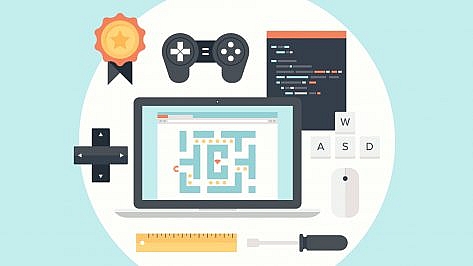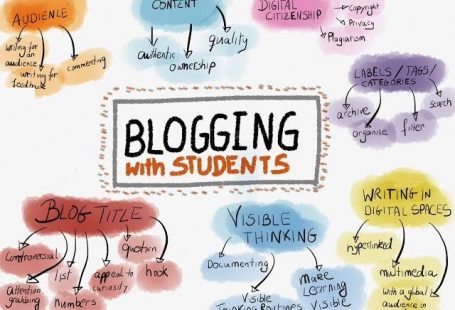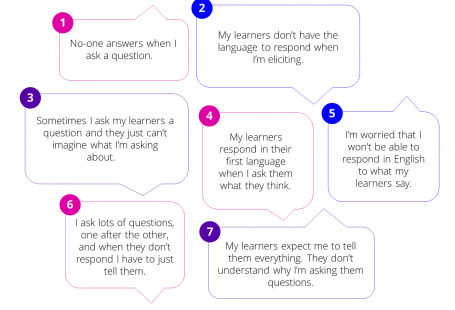Many people do not know serious gaming and there is often confusion about the term. We have to admit, it sounds like an oxymoron. The words, serious and games, seem to be contradicting each other. Can games be serious, and does that mean that they’re not fun at all?
Well, serious games can definitely be fun, but the most important thing that sets them apart from entertainment games is their educational purpose. Serious game developers intend to teach their players something. The purpose of the game is thus different from pure entertainment games. Also, entertainment games might teach their players something, but their primary motive is to entertain.
Serious Gaming
Serious games are games that use computer game and simulation approaches or the technologies, for primarily non-entertainment purposes. A serious game can have all the elements that characterize any other game like chess. It can be goal-oriented with specific rules, a feedback system, and a competent competitive element. The only characteristic that is sometimes not present in serious games is, the voluntary character. Since these games are generally used in an educational setting or a training situation, players will often be asked or told to play a certain simulation or game.
Serious games are different from other media products such as educational movies or books, because they offer an experience in which the player is actively involved in making decisions. The player is immersed in the gaming experience and is receiving feedback over his or her own decisions. This is also why serious games are supposed to achieve a better learning outcome.
According to the researchers RItterfeld, Cody and Vorderer, who wrote the book on the mechanisms and effects of serious games, “Serious games are both educational and enjoyable because they are intrinsically motivating. The game environment is responsive and can have a complexity that allows for learning opportunities.”
Awarded Serious Game: The Uber Game
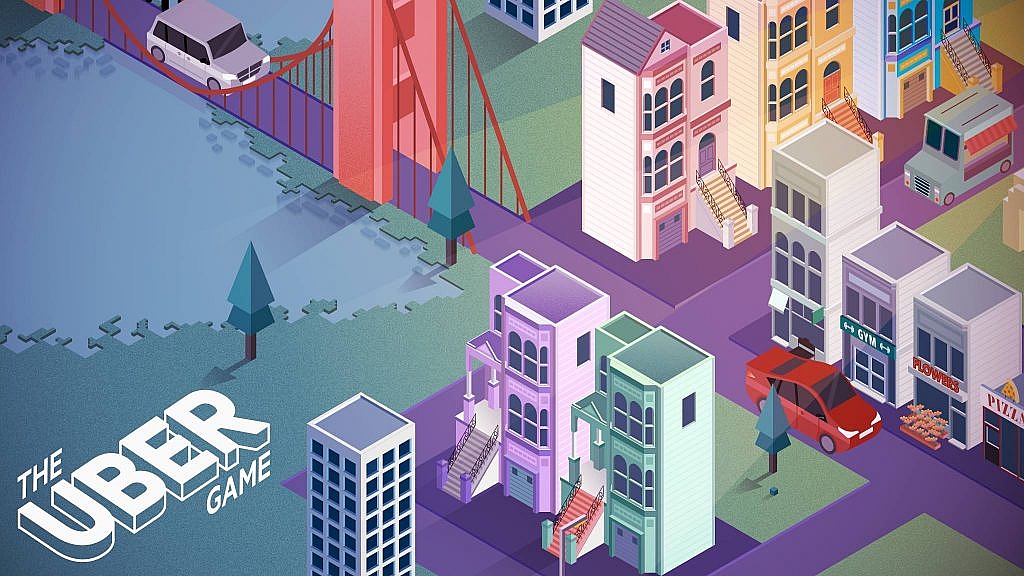
The Uber Game developed by The Financial Times in 2018 is a good serious game in which you are a full-time Uber driver with two children to support. In a week you must pay pay $1,000 for your mortgage so it’s pretty urgent to make enough rides to pay your bills. I advise you to choose the easier level in the game. Now, go ahead and pick up your first passenger.
Playing the game transports you into the driver seat for full-time Uber driver, giving you a deeper understanding of what it’s like to try to make a living in sharing a gig economy. In May 2018, The Uber Game won a gold medal at the annual Serious Play Awards in the United States.
I think this is a great example for serious gaming since you can notice the common characteristics of games including goals, rule-based, feedback, competitive element, and voluntary. The goal is to make rides to earn enough money to pay your mortgage and feed your kids in a context of rules as the game instructs you what to do. Your actions receive feedback at regular intervals, so you can determine whether the target is within sight. Game has two competitive aspects. By the end of the game, your performance is related to your personal goals; you needed $1,000 to pay your bills. But the game also shows you how other players performed. The voluntary aspect is obvious. People can decide for themselves whether they play or not.
The developers at the Financial Times call this a news game, emphasizing that the game particularly aimed at informing us players. Awareness seems the serious goal here. They want their audience to understand the problems of Uber drivers better since they have experienced it themselves.
From5to4 Game

If you’ve ever experienced a traffic jam, you might understand how frustrating it can be. It takes up a lot of time and causes nuisance. Traffic jams also have a negative impact on the economy and environment. In a small country such as the Netherlands, commuting car drivers are stuck in traffic for over 50 hours a year. To encourage such car drivers to change their behavior for example, by choosing alternative commuting times, some government initiatives offer a monetary reward.
The Rotterdam based company, Organiq, is of the opinion that there are other and better ways to motivate the car drivers by using elements from serious gaming. Game developers at Organiq, designed From5To4, a serious game that aims at motivating commuters to replace their car by an alternative way of transportation for one day a week.
From5To4 motivates employees of participating organizations to commute more smartly on at least one out of five working days by using public transport or a bicycle, by carpooling, or by working from home. The game responds to a growing trend to link behavioral change, interaction, and game elements in a fun and challenging way. In addition, From5To4 is the ideal tool to measure changes in travel behavior in a responsible and reliable way, and to translate these results into relevant information for the management team. The game encourages its players to think about the travel behavior and how to improve this. By this from From5To4 also fulfills a social and environmental purpose, reducing congestion by 20 percent, thus contributing to a more sustainable and accessible country.
The ABCDEsim Game
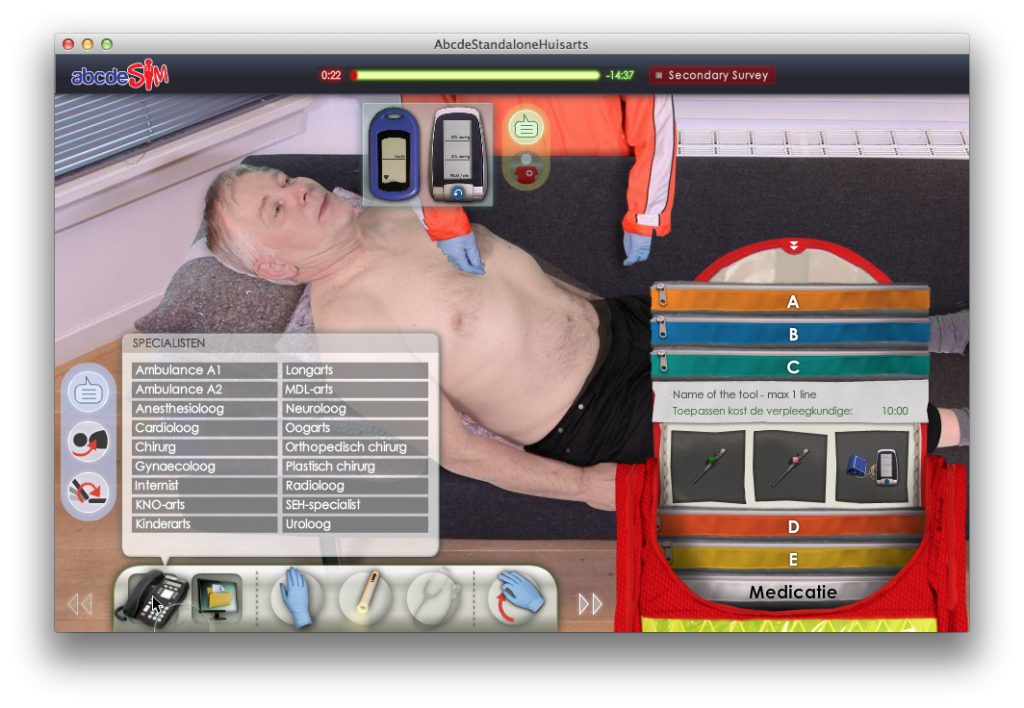
The ABCDEsim of the RSS Medical Center prepares medical students and doctors for their work in emergency room. The simulation trains behaviors step by step. It might not be as romantic compared to the hospital shows we see on television such as Or Grey’s Anatomy. The game provide a much more realistic image. Patients in the game are in need of immediate medical attention since they are in critical condition. By playing students and professionals have to make choices treat their patients and are confronted with the consequences of their actions. If they fail, no worries, they will lose points but will not hurt any real patient.
ABCDsim includes a model of bodily functions that contains more than 200 parameters for circulation, respiration, and consciousness. Because of this model, players can see the direct results of their chosen diagnostics and treatment. They got instant feedback on what to do. Mistakes made in all mine patients are not fatal, as in real life, but important learning points, thereby improving everyday patient care. The game also simulates the time pressure that is common in the emergency room.
Dr. Stephanie Klein Nagelvoort-Schuit and the team have developed a simulation for students in the Doctors only. Because of the technical detail and difficulty of the game, you cannot play the game at home.
The Tedx Talk below will provide further information about the serious games and simulations.
The text is adapted from the course, Serious Gaming arranged by Erasmus University Rotterdam in Coursera.
Please feel free to contact me if you need any further information.
